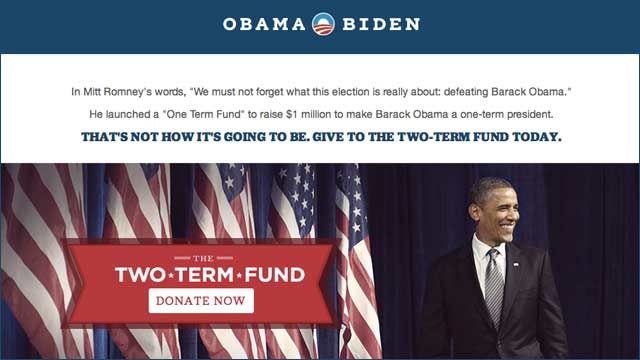They haven’t yet gotten to the point of looking under sofa cushions or checking pay phone slots for loose change, but hey, it’s only February.
The political scramble for campaign cash continues, with all candidates and Super PACs — enabled by Citizens United and other court rulings — doing everything in their power to shake every nickel they can out of contributors, great and small.

In a story headlined “Obama Trumps Romney with Small Donors,” ABC News reported, “Nearly half — 48 percent — of Obama’s $118 million haul in 2011 came from individuals giving $200 or less, according to a new analysis by the Campaign Finance Institute, a nonpartisan group.”
“Small-donors made up only 9 percent of the 2011 fundraising total for Mitt Romney. But it’s on the other end of the donor spectrum that Romney holds more sway: He gathered 82 percent of his funds from donors giving $1,000 or more, the Campaign Finance Institute found. Those high-dollar donors comprise just 28 percent of Obama’s total.”
Michael Malbin, the Institute’s executive director, makes an interesting point: “Because small donors can give again, and may be willing to serve as campaign volunteers, successful small-donor fundraising can serve a political purpose that goes well beyond the reported dollars.”
Nonetheless, all indications are that Democrats and their supporters have been freaking out over the millions GOP-affiliated Super PACS are bringing in, as Wall Street and other high rollers with unlimited funds seek an even more sympathetic ear in the White House.
Hence the President’s embrace this week of the Democratic Super PAC Priorities USA Action — despite his previous denouncement of Super PACs as a “threat to democracy” — and this week’s story that five Democratic Super PACs, including Priorities USA Action, are considering a joint fundraising effort, “seeking $1 million to $10 million contributions, now that President Barack Obama has blessed the outside working group working to get him re-elected.”
Obama campaign manager Jim Messina insists the President’s about-face is necessary. “With so much at stake, we can’t allow for two sets of rules in this election whereby the Republican nominee is the beneficiary of unlimited spending and Democrats unilaterally disarm,” he blogged earlier this week.
The stakes are also why Messina paid a visit to New York’s members-only Core Club this week to reassure unhappy Democratic donors from the financial sector that the President’s populist rhetoric is just… rhetoric.
“President Obama has a message for Wall St.,” The New York Daily News said. “I will not demonize you, just Mitt Romney and his ties to you.”
The Center for Responsive Politics calculates that the 2008 Obama campaign received almost $16 million from employees in the securities and investment industry and their families. But, as Hans Nichols of Bloomberg News notes, “After Obama championed new regulations designed to curb abuses blamed for the worst economic downturn since the Great Depression, Wall Street put its money elsewhere.”
Still, all this wooing of the wealthy is making other influential donors uneasy. Democratic fundraiser and strategist David Rosen told The Los Angeles Times that he understood the Obama campaign’s rationale, but added, “What it means is that one person can affect the nominating process. I find it appalling.”

